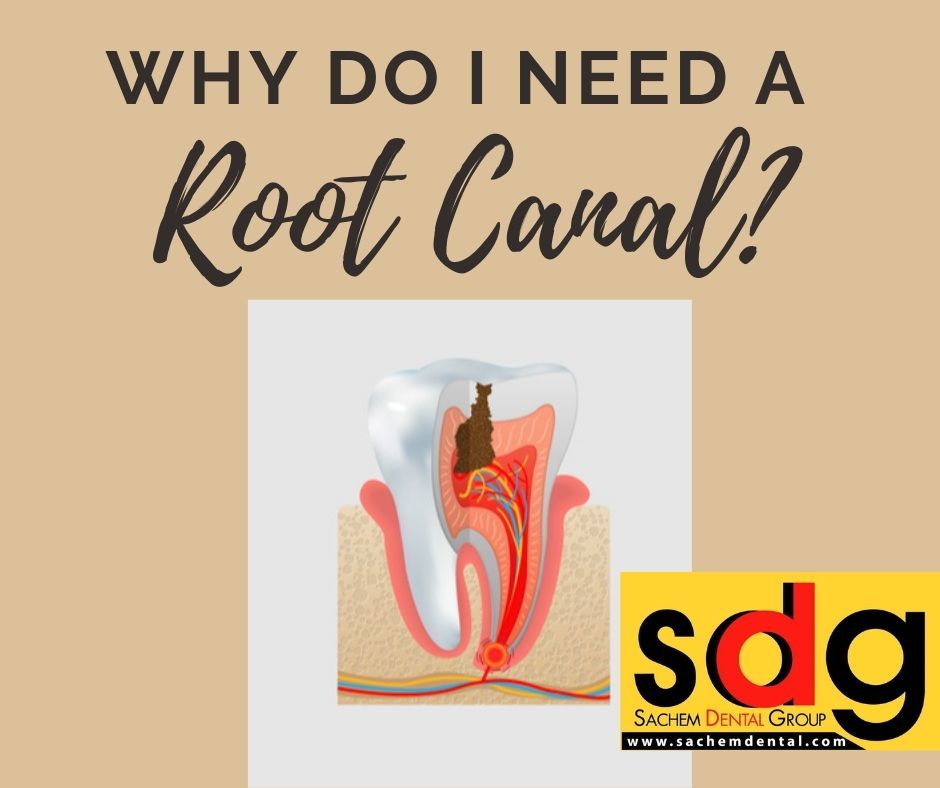
Perhaps one of the biggest misconceptions about endodontic therapy (root canal treatment) in Long Island — aside from whether it’s comfortable or not — is the importance of the procedure. For a lot of people, it doesn’t seem an urgent matter to seek out major dental care unless they’re experiencing physical pain. And if their tooth isn’t hurting, it can seem counterintuitive to look into a therapy that is specifically designed to treat the nerve inside of it. You’re probably asking, “Why do I need a root canal if my tooth doesn’t even hurt?”
Root Canals When a Tooth Doesn’t Hurt
That’s where we stop and take a few steps back. By design, endodontic treatment is meant for tooth preservation. Although it can successfully treat tooth pain and severe toothaches, not all dying or abscessed teeth will experience discomfort. The physical pain may not become evident until the infection is quite severe, if ever at all. By that point, the source of the nerve damage can spread and impact other adjacent teeth.
If our Suffolk County dentists see signs of an abscess, deep decay (reaching into the nerve), or similar infection, the standard of care is to treat it immediately so that it does not progress. Left untreated, the disease cycle will only continue to worsen.
Why do I Need a Root Canal if Pain is Absent?
The pulp (nerve) of a tooth is the primary tissue responsible for transmitting stimuli back and forth to your brain. But if the nerve becomes damaged, say, through trauma or infection, it may not work correctly. Bacterial infections from decay, active abscesses, or even physical trauma like an athletic injury can cause the nerve to die. When that happens, it cannot properly signal to your brain that any damage has occurred. Instead, you start to watch for other symptoms like tooth darkening or anomalies on your dental X-rays.
The Only Option for Saving Teeth
Endodontic therapy is specifically meant to preserve damaged teeth before they reach the point of requiring an extraction. By eliminating the dying tissues and reinforcing the tooth in advance, it’s possible to prevent additional deterioration of the tooth structure itself.
Root canal treatment leaves an intact, treated tooth that can be reinforced with a crown and function for several more years to come. No other type of restorative therapy treats the deeper spaces inside of your tooth like a root canal will.
Perhaps you want to “wait and see” before starting your Long Island root canal treatment. This approach can be extremely risky, as it’s common for affected teeth to erode from the inside, compromising their overall integrity. The standard of care for tooth preservation is to perform a root canal when internal damage is evident.
Gentle Suffolk County Root Canal Treatment
If you’ve never had a root canal, you’re not alone. With it comes concern and even a bit of anxiety (given the old Wive’s tales out there.) But with a multi-specialty general dentistry team on your side with 30+ years of experience, you’re in some of the best hands possible. Call Sachem Dental Group today to reserve a private consultation.






